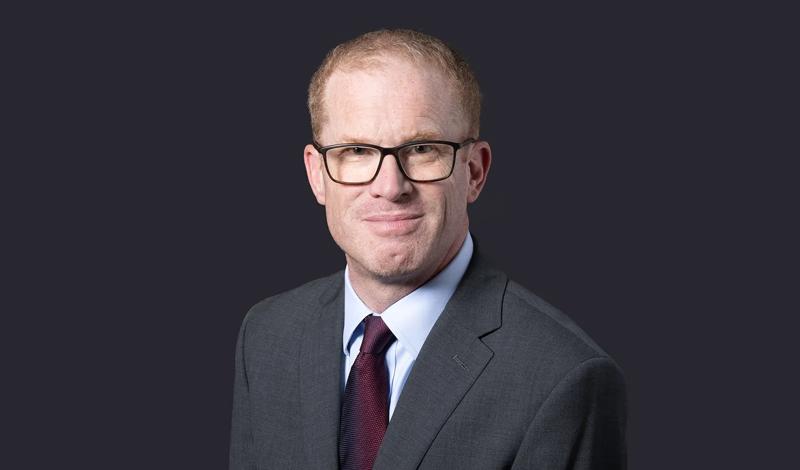Browne Jacobson has been delighted to again work in partnership with our colleagues and friends at the National Governance Association (NGA) and the Association of School and College Leaders (ASCL) on the development of this important guidance paper, ‘Taking the next step – a guide to forming or joining a multi academy trust’, published today.
It was back in 2015 that Browne Jacobson first collaborated with the NGA and ASCL on a project to prepare guidance to support senior leaders, trustees and governors of maintained schools and single academy trusts as they considered the future of their school in a system that looked likely to consist largely of academies in multi-academy trusts (MATs).
Since that time our joint guidance has been periodically updated to reflect ongoing policy and other developments in the schools sector. We are confident that with the recent publication by the DfE of a White Paper and a Schools Bill, the latter of which is one of the most significant pieces of education legislation in recent years, the schools sector will welcome the fact that the NGA, ASCL and Browne Jacobson have decided to come together again to substantially rewrite and update the existing version of the guidance document in order to ensure that it continues to play the role it has delivered so well over the last seven years in supporting school leaders, trustees and governors to better understand the current policy landscape, to consider their options and to make the best long-term decision for their school.
Related expertise
You may be interested in...
Guide
MAT mergers: A guide for academy trust leaders and trustees
Legal Update
How the Academies Programme could transform higher education
Legal Update
How the Academies Programme evolved: A blueprint for higher education reform?
Legal Update
What universities can learn from the Academies Programme
Legal Update
The Academies Programme and higher education: Key takeaways for university leaders
Legal Update
Be prepared for the 2025-26 school year
Press Release - School Leaders Survey
Browne Jacobson’s School Leaders Survey illustrates concerns over financial resilience ahead of spending review
Legal Update
The rise in schools-based nurseries and the practicalities for growing trusts
On-Demand
EdCon 2025: Top five takeaways
On-Demand
Handling parent complaints against staff: Panel discussion
Press Release
Children’s Wellbeing and Schools Bill: Comments from education lawyers
Legal Update
Funding withdrawn for trusts and academy conversions
Guide
New guidance for intervention in schools
Press Release
Browne Jacobson and the National Association of Head Teachers publish new guidance for faith schools faced with joining or becoming an academy trust
Article - School Leaders Survey
School leaders survey Summer 2023 – the results are in
Guide
FAQs – academy re-brokerage
Legal Update
New guidance: understanding academy trusts
Legal Update
#EdCon2023 virtual event hailed a success
Guide
FAQs - converting to academy status
Guide
FAQs - becoming a sponsored academy
Guide
FAQs - becoming an academy sponsor
Guide
FAQs – single academy joining a MAT
Guide
Virtual AGMs
Guide
Setting up a trading subsidiary – a guide for academy trusts
We’re pleased to collaborate with Lloyds Bank, who recently asked us and audit and risk specialists Crowe UK to offer guidance that academy trusts would find helpful when considering setting up a trading subsidiary.
Press Release
Law firm picks up record breaking sixth Education Investor Award
Browne Jacobson’s education team has been named as winner of the ‘Legal Advisors to Education Institutions’ category at the Education Investor Awards 2022 for a record sixth time.
Press Release
Thousands take part in virtual careers event to help increase diversity in the legal profession
Over 3000 young people from across the UK and Ireland took part in a virtual legal careers insight event, aimed at making the legal profession more diverse.
Press Release
Leading education lawyers play major role as DfE announces 10,000th academy conversion
The Department for Education (DfE) have announced that the conversion of Donisthorpe Primary School in Leicestershire on 1st September marked the 10,000th academy conversion.
Legal Update
Schools Bill and intervention powers - an update
We provide an update on the Schools Bill proposed legislation & it's impact on academy trusts.
Published Article
It's time for education to embrace flexible working
If NHS staff can request a flexible approach to working patterns then the sector needs to get serious about what it can offer staff, too, if it is to avoid further strain on recruitment and retention.
Guide
Taking the next step – forming or joining a multi academy trust
Legal Update
Local authority academy conversion powers
A question we often get asked by schools is “can I be forced to become an academy?” The answer to that question to date has centred around whether a school is eligible for intervention and, primarily, its Ofsted’s grade.
Legal Update
Implementing school system reform – next steps
Following its publication of the White Paper at the end of March, the Department for Education (DfE) has shared an implementation framework focusing on its plans for “a stronger and fairer school system”.
Legal Update
Academy Intervention Powers
Part 1 of the Schools Bill introduces statutory rights designed to ensure that the Secretary of State has efficient oversight and is equipped to address “instances of failure” in academy trusts.
Guide
A Guide to the Schools Bill 2022
Press Release
Browne Jacobson’s C-suite exec level coaching team appoints two new education specialists
National law firm Browne Jacobson has grown its team behind its dedicated Space + Time executive coaching programme with the addition of two more qualified coaches who will work with clients in the education sector.
Published Article
Families of Schools – Where are we with the DfE Messaging?
In the intervening years we have seen the actual number of schools converting to academy status over the past few years has gone up and down in a succession of waves.
Press Release
Browne Jacobson hosts UK’s largest virtual legal careers event to boost access to careers in law
Press Release
New benchmarking service now available to guide the remuneration of school trust executive teams
The Confederation of School Trusts (CST), as the sector body for School Trusts, today releases a salary benchmarking service for executive roles in School Trusts, in conjunction with partners XpertHR, Cendex and Browne Jacobson.
Legal Update
Successful challenge to Secretary of State’s refusal to revoke directive academy order
Our client, Yew Tree Primary School, challenged the Secretary of State for Education’s (SSE) decision not to revoke a directive Academy Order.
Legal Update
A policy in the sun
As we approach the end of a particularly turbulent academic year, finding the time, energy and buy-in to review school policies may seem less likely than finding a holiday cottage in Cornwall for mid-August.


























